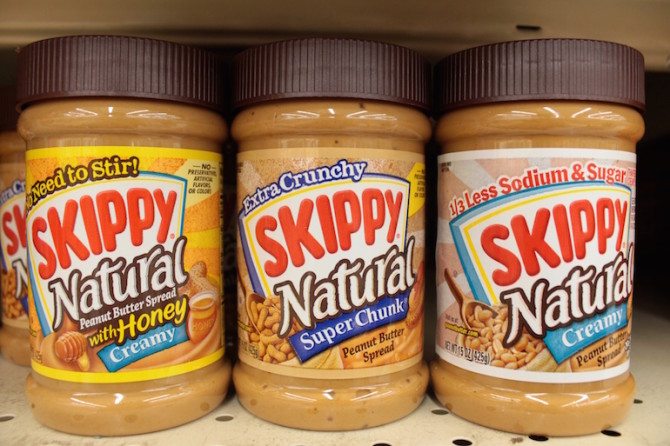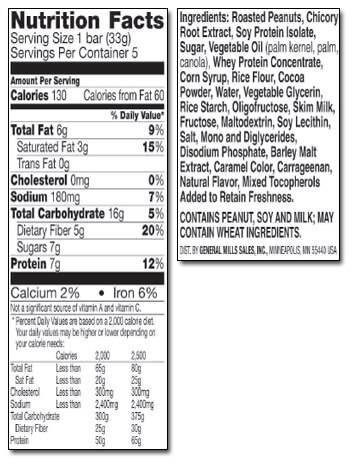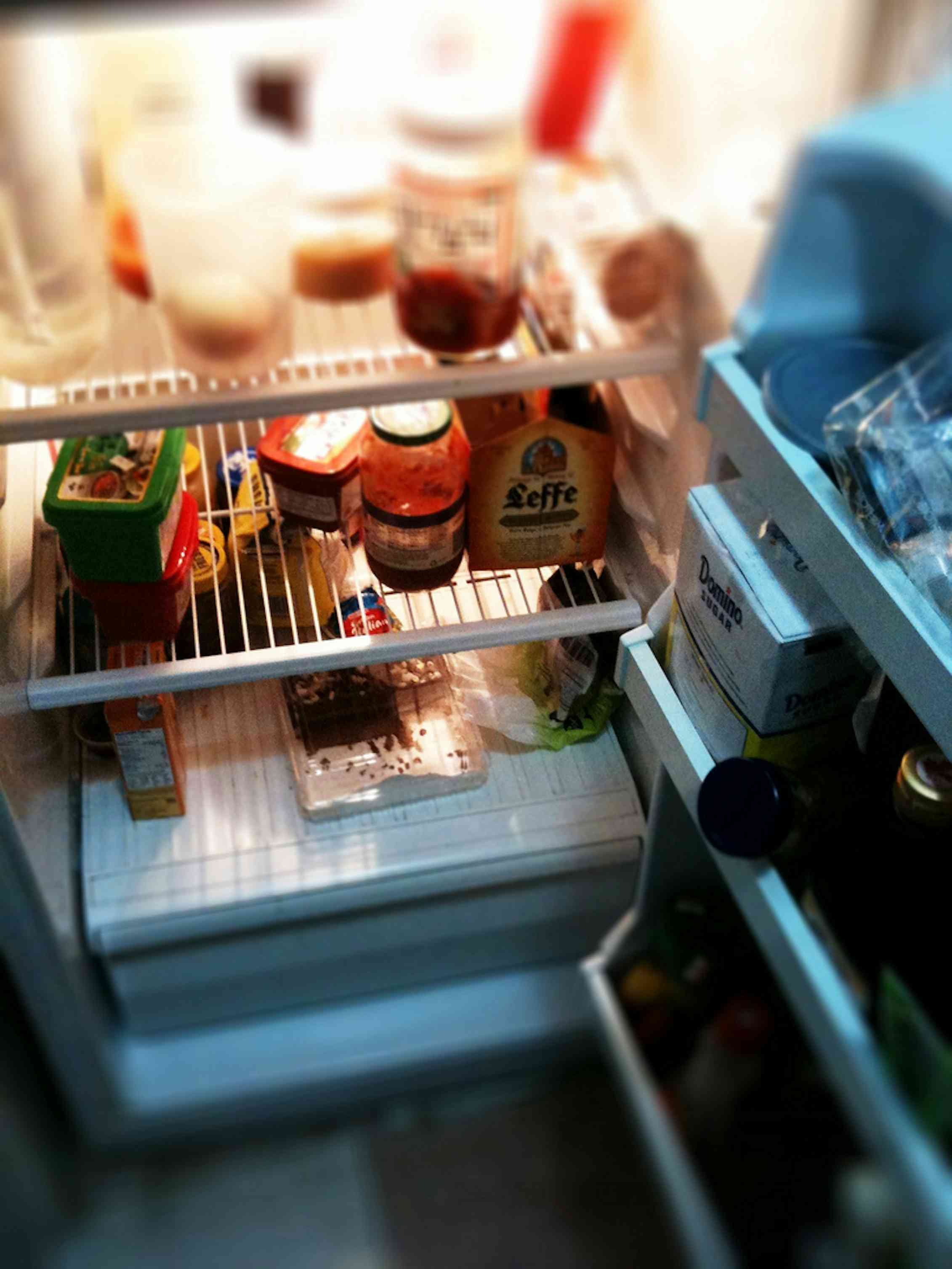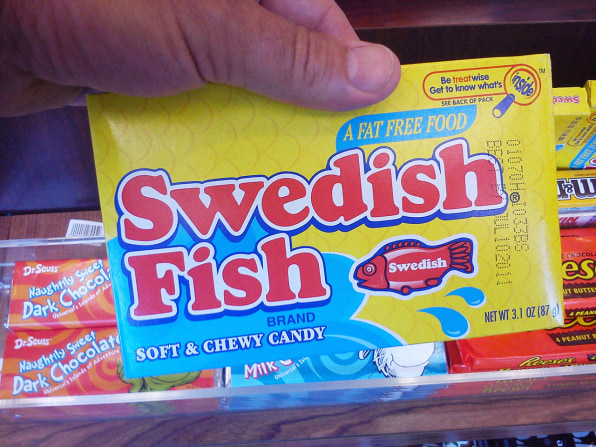39 misleading food labels australia
Meat industry claim that plant-based products 'mislead' people rejected ... Food labelling must indicate the 'true nature' of a product, according to Food Standards Australia. ( Supplied: Flickr/Erich Ferdinand ) The ACCC also noted that most retailers already stock meat products and plant-based products separately. Meat industry 'unfairly' impacted by plant-based labelling, says industry Therapeutic goods advertising: Ensuring 'natural' claims are not misleading In addition, the Panel raised possible breaches of paragraph 4 (1) (b) [6] and 4 (2) (c) [7] of the Therapeutic Goods Advertising Code 2015 ('2015 Code') by the use of 'Natural' within the name of the product. The product sponsor refuted the alleged breaches on the basis that: the active ingredient was an extract of Hydrastis candensis.
Food labelling - Health.vic Food labels must carry essential information, so that consumers are informed of the nature and properties of foods before they buy. Food businesses must ensure that they do not mislead or deceive consumers with any claims made on food labels. Food importers must also comply with Australian labelling laws.

Misleading food labels australia
Truth in Labelling - Hot Topics - Animal Protection - Voiceless Current laws require certain information about animal-derived food products to be disclosed on product labels. For example, the Australia New Zealand Food Standards Code, Standard 1.2.2 requires the name of the food, the lot identification and the name and address of the supplier to be displayed on the packaging, while Standard 1.2.5 requires ... Australian industry attacks potential ban of 'meat', 'milk' labels for ... The communique issued from the most recent Australia and New Zealand Ministerial Forum on Food Regulation placed this issue under the header of 'Misleading Descriptions of Food', where it was revealed that the labelling of both plant-based and cell-based products had been discussed, but no conclusions had been reached as yet. PDF Food Labels What do they mean? - Food Standards Foods such as peanuts, tree nuts (e.g. cashews, almonds, walnuts), shellfish, finned fish, milk, eggs, sesame and soybeans and their products, when present in food, may cause severe allergic reactions and must be declared on the label however small the amount.
Misleading food labels australia. Food Fraud Is Real. Here's How To Detect Mislabeled Foods. Both honey and olive oil have been adulterated and then falsely labeled. Honey has been diluted with corn syrup or sugar, while olive oil can be mixed with cheaper oils and, in some cases, food coloring is added to give the green hue of oils rich in phytonutrients. Food labelling in Australia: a warning on misleading the consumer ... The ACCC v Pirovic case in Australia illustrates the risk in adopting a food labelling and advertising campaign that does not pay sufficient regard to what is conveyed by the label to consumers. 'Free range' labelling credence claims 'Free range' labelling of eggs has a particularly strong impact on the mind of consumers. Food labelling - WA Health, Government of Western Australia Fair trading laws and food laws in Australia and New Zealand require that labels do not misinform consumers through false, misleading or deceptive representations. In Australia, this legislation includes the Australian Consumer Law (ACL) contained in the Competition and Consumer Act 2010, and state and territory Fair Trading Acts and Food Acts. Food labelling FAQs | ACCC biscuits and snack food (e.g. chips, crackers and ready to eat savoury snacks but excluding cakes, muesli bars and processed nuts) bottled water soft drinks and sports drinks (excluding non-carbonated fruit or vegetable drinks, milk and milk substitute drinks) alcoholic beverages.
Misleading food labels use healthy-sounding terms for additives Rosemary extract is just one of the euphemisms used to mislead shoppers on food labels. The wording is a substitute for BHA and BHT, found in foods such as cereals, salami, fresh pasta, margarine and cooking oils to help preserve their shelf life. Supermarket food labels mislead shoppers - SMH.com.au The federal government took no action this month on reforms to clarify country-of-origin labels proposed in the Blewett report into food labelling. Loopholes in the laws include food that is imported into New Zealand, repackaged and sent to Australia, with no need for a label about where the food originally came from. Food label details misleading: study - The Age Food label details misleading: study. THE mandatory nutrition information on processed foods in Australia is often inaccurate and misleading, according to the first analysis of how well the claims ... Shoppers being misled by labels that claim food is 'artisanal' or ... Food manufacturers are deceiving the public by mislabelling their products as "artisanal" or homemade and implying they are full of healthy whole grains and fruit when they are not, according to a...
Buyer beware: Consumer labels can mislead shopper - The New Daily Buyer beware: Experts warn product labels are misleading The media could not be loaded, either because the server or network failed or because the format is not supported. Reporter Labels on products in Australia claim to inform consumers of anything from efficiency ratings to country of origin, but they're often misleading, confusing or wrong. PDF Misleading descriptions for food options paper It outlines matters for consideration, and noting a lack of evidence to suggest that consumers are being misled, presents three options: 1. maintain status quo and take no further action; 2. refer the matter to the Legislative and Governance Forum on Consumer Affairs; 3. seek further information to inform the evidence base. 1 CHOICE guide to food labelling - Nutrition Both the Food Regulations and the Commonwealth Trade Practices Act - administered by the Australian Competition and Consumer Commission (ACCC) - prohibit false and misleading information. So you'd think this would be a safety net for the consumer, but in reality nothing much is ever done about misleading food labelling. False labelling hides the truth about superfoods - Pursuit Our recent research shows that Australia's current food regulation system is not adequately protecting consumers from 'food fraud' - misleading or false statements made about a product for economic gain. At a time when obesity and diabetes are on the rise, consumers are increasingly anxious to make 'healthy' food choices.
16 Most Misleading Food Labels - Health.com This is a notoriously misleading label. When the dangers of saturated and trans fat became clear, the market was flooded with products that touted their fat-free status. The problem? They sometimes...
Food Labels Are Super Sneaky. Here's What They Really Mean Here's what 13 misleading food labels really mean. 1. 'Toasted', 'crunch', 'clusters' -- contains added fat or oil "These are three words that basically mean the same thing, but the label is used on various foods," McAleese told HuffPost Australia. "It's really another way of saying there is added fat or oil in the product.
Misleading Food Labels Misleading food labels could put you at risk. Food producers often use labels as a marketing tool & you might not be getting what you think
Labels & the law | NSW Food Authority Everything said about a food on the label is also subject to Australian Consumer Law, which prohibits false, misleading or deceptive representations (see Truth in Labelling ). For detailed and technical advice on food labelling, contact a professional food safety or labelling consultant. See Professional advice.
False or misleading claims | ACCC If the overall impression left by a business's advertisement, promotion, quotation, statement or other representation creates a misleading impression in your mind—such as to the price, value or the quality of any goods and services—then the behaviour is likely to breach the law. There is one exception to this rule.
No more almond 'milk'? Australia looks to stop 'misleading' plant-based ... Manufacturers in Australia may soon have to re-label all plant-based products containing the terms 'meat' and/or 'milk' in them, as politicians request Food Safety Australia New Zealand (FSANZ) to review the standards surrounding these. ... Australia looks to stop 'misleading' plant-based product labelling .
Credence claims on Australian food labels - CHOICE And many credence claims can be misleading. Credence claims crackdown. In 2014, ... a food importer paid a $10,200 penalty after the ACCC pulled it up for selling a product called Hi Honey with a map of Australia on its label, ... A senate inquiry was launched in May to investigate food certification schemes in Australia. It will look at ...
Food labels - Better Health Channel Food labels carry useful information to help you make informed choices about what you and your family eat and drink. ... Don't be misled, terms used by manufacturers are often misleading. For example: ... Only priority foods that are produced or grown using 100% Australian ingredients can use the produced or grown in Australia label.
What Are The Labelling and Packaging Laws in Australia? The ACL is a national law that aims to protect consumers, and ensure fair trading and competition in Australia. As a general rule, all product packaging and labelling must comply with the ACL. For example, the ACL requires that: most food products have a notice or label to inform customers which country the product came from;
Labelling - Food Standards In addition to the Food Standards Code, all representations made about food are subject to fair trading laws and food laws in Australia and New Zealand which prohibit false, misleading or deceptive representations. For further information see Truth in labelling, weights and measures and legibility.
PDF Food Labels What do they mean? - Food Standards Foods such as peanuts, tree nuts (e.g. cashews, almonds, walnuts), shellfish, finned fish, milk, eggs, sesame and soybeans and their products, when present in food, may cause severe allergic reactions and must be declared on the label however small the amount.
Australian industry attacks potential ban of 'meat', 'milk' labels for ... The communique issued from the most recent Australia and New Zealand Ministerial Forum on Food Regulation placed this issue under the header of 'Misleading Descriptions of Food', where it was revealed that the labelling of both plant-based and cell-based products had been discussed, but no conclusions had been reached as yet.
Truth in Labelling - Hot Topics - Animal Protection - Voiceless Current laws require certain information about animal-derived food products to be disclosed on product labels. For example, the Australia New Zealand Food Standards Code, Standard 1.2.2 requires the name of the food, the lot identification and the name and address of the supplier to be displayed on the packaging, while Standard 1.2.5 requires ...

















Post a Comment for "39 misleading food labels australia"